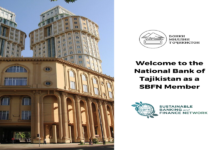Or what leads to the ruin of entrepreneurs in Tajikistan?
A well-known entrepreneur who manages ten small and large enterprises, clasping his head with both hands, sat down, looking down.
Our arrival distracted him from deep thought. The question is, “How are you?” – Replied in one sentence: – “very bad!”
He called us to the window of his office and pointed to the four men standing in the street. Nodding his head in their direction, he said – they are waiting for me to leave the office … they have to seal the door of the office… This is the current reality of the Tajik businessman…
Sadly, many enterprises in Tajikistan have almost the same fate. Or correspond to the unwritten law of our reality and come out whole, or they expect a slow “withering” and ruin. Our investigation showed that the “cock screams equally everywhere”.
Tajik enterprises, which are the key to the well-being and employment of the population, often face bankruptcy for well-known reasons, namely, the improbability of our reality, which do not fit into any global economic laws.
This is only one story of Tajik enterprises.
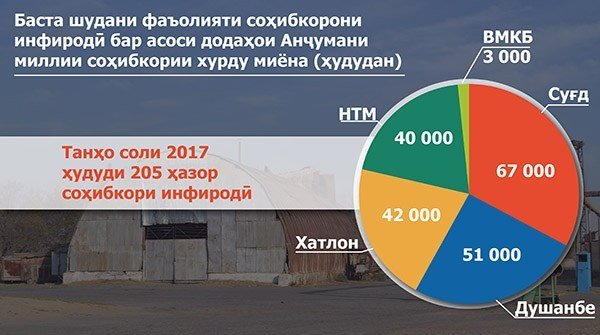
FALL OF THE “EMPIRE”
All residents of Kulyab know the company “Samar”. The founder of this famous company was deceased Samariddin Fazliddinov.
To work in a cotton factory, he entered in 1981, which had only one receiving point of cotton. Back in Soviet times, he brought the most advanced equipment and launched a test facility for cleaning cotton fiber from Russia, by those standards.
After the collapse of the Soviet Union, until 1997, he created more than 20 manufacturing enterprises : spinning, textile, hemming, carpet, point for the development of vegetable oil and soap. And also the non-production – airline “Samar air”, TV “Mavji Ozod”, “Samartrans” and construction companies in Kulyab, Farkhor, and Khujand.
It should be noted that until 1996 “Samar” was one of the largest companies in Kulyab zone. On the Fazliddinov’s initiative, it was even planned to reconstruct the airport of Kulyab, as well as to conduct a trolleybus line from Kulyab to Vose. This is evidenced by the installed special poles along the road.
BUT, according to the General Director of the company “Samar” Muslihiddin Fazliddinov, after the intervention of the management of the district, all construction works of this object were suspended, in connection with which from 1997 to 1999, the company was almost inactive.
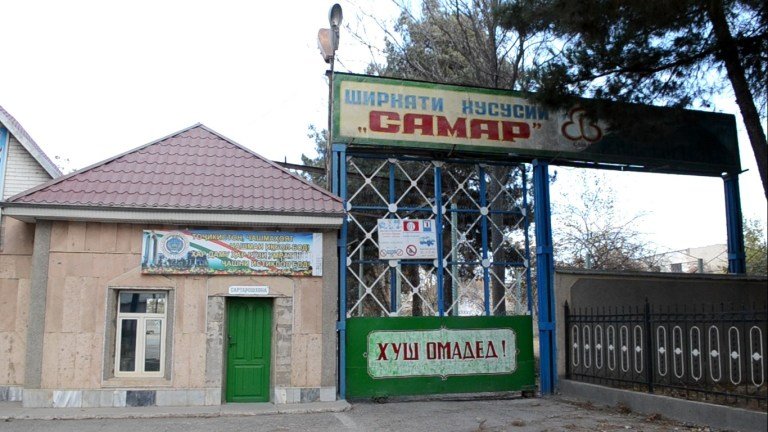
Only after 2000, the affairs of “Samar” began to improve a little, i.e. its enterprises began to function, but not at full capacity.
In 2008, the global financial crisis has made its sad adjustments, where cotton prices fell significantly, which led to a violation of the company’s plans. After all, cotton was the main source of all other enterprises of the company. In 2010, the company was damaged in the amount of 1 million 800 thousand dollars.
The founder of the company Samariddin Fazliddinov died in 2012. His children decided to continue his work, but faced great obstacles. Muslihiddin Fazliddinov noted that from the “vast Empire” of “Samara”, only left TV “Mavji Ozod” and some enterprises for the production of paper with low power. He also added that the only seed farm cannot use the land. In the past 90s, the company was employed as a permanent job – 2100 workers and 3 thousand people hired for seasonal work. Only 65 people work there now.
The main office of the company is located along the Dushanbe – Kulyab Road. On the left side of the road, you can see a large banner (shield) with the inscription of the company when you leave Vose district in the direction of Kulyab.
Entering the territory of the enterprise, you can immediately see the inactive (although there was a season of cotton harvesting) large crane and the equipment for processing cotton fiber, which testified to its former glory.
«FAYZI DIYOR»

Another area of Tajikistan is Matcha district. In 2002, a simple farmer Rahmonali Sharipov organized and engaged a production cooperative called “Fayzi Diyor”, which had only 94 hectares of land, but did not have any equipment, did not even have a field camp, and had a debt of 72 thousand dollars.
Characteristically, in a short time, he was able to purchase new equipment and dig 3 wells with drinking water. And also from Sweden and Holland brought pedigreed cows, and in 2010 organized a dairy enterprise. To this end, together with Turkish specialists, he brought Italian technology for the production of cheese.
It should be noted that 70 percent of dairy products of the Sugd region produced in Matcha region. Even in Soviet times, the area did not have a dairy enterprise.
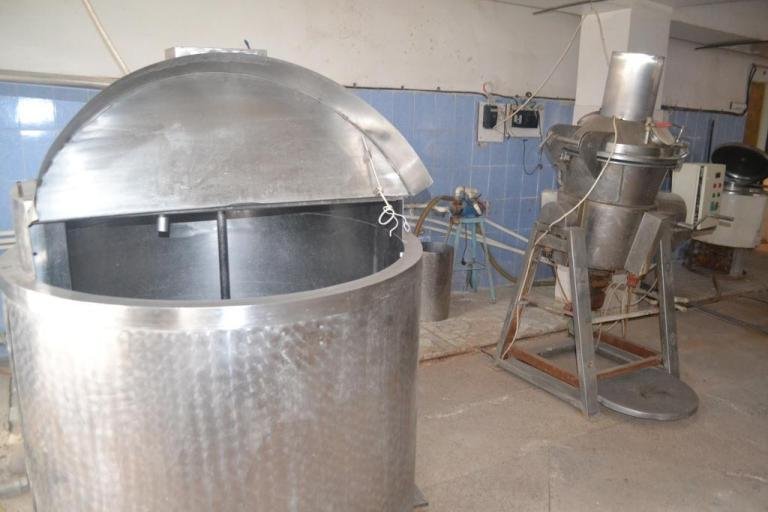
“Fayzi diyor” is the first dairy company in the region, which began to produce its first products in May 2013. The enterprise won the place in the market in 6 months, because all production was from pure milk. Checks from “Gosstandart” (State Standard) showed that the fat content of the product is twice the norm. Dairy products of the company: cheese, clotted cream, kefir, clabber and sour cream is made without additives and they are natural food.
So, two years (2013-2014) for “Fayzi Diyor” were the best years for production. His products attracted the interest of entrepreneurs from Afghanistan and Kazakhstan.
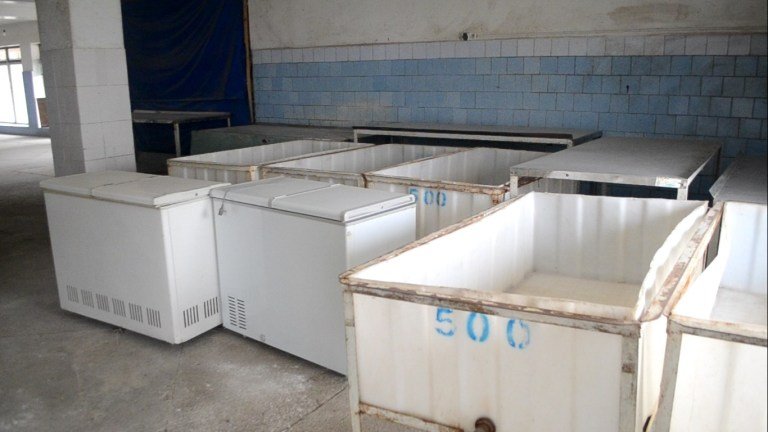
The company transferred to the state budget 18 000 TJS every month. 14 people worked in the production, whose monthly salary was from 800 TJS to 1400 TJS. More than 1, 5 tons of dairy products were produced per day. It was functioned 234 outlets in Mascha area, in the cities of Khujand and Dushanbe, where successfully implemented the product of “Fayzi Diyor”.
The company bought milk from private traders in the seasonal period, for one liter of 1-1.5 TJS, and in the winter period – 1.80 to 2 TJS.
But, the end of this story was sad. Inflation of the national currency in 2015 caused great damage and on November 10, 2015, the company “Fayzi Diyor” was closed.
“Three troubles»
Whenever a conversation starts about the “challenges of entrepreneurship”, which refers to the checking, frequent comings of inspection bodies, officials bureaucracy, customs duties, many interlocutors point to the three troubles at once. It is unrealistic taxes, high bank interest taken on credit and high electricity prices.
One of the entrepreneurs reported, sighed with relief that finally, after a long “running”, a month later, received an official document for his company from the tax Committee.
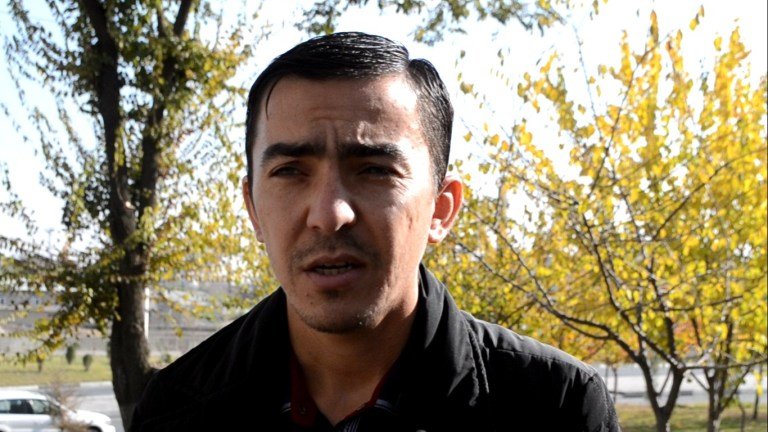
The General Director of the company “Samar” said that the main difficulties of enterprises for the processing of cotton are taxes. Because these businesses are required to pay tax on pure fiber, yarn, material and clothing output. He also added that there is only one relief for them – if they sell cotton inside the country, the tax will not be charged. 5 % of the total amount is charged, and if 1 ton of cotton was purchased for 4, 5 thousand TJS, then 225TJS will be added to them.
Rahmonali Sharipov mentioned the “moderate tax” in his conversation. He believes that until the company enters into full capacity, the state should not levy taxes on them, because these benefits provide an opportunity to strengthen the company and solve their problems.

He added: “When “Fayzi Diyor” offered its products to Afghan and Kazakh entrepreneurs, they agreed to purchase, but…the appearance of the package did not meet the needs of the market. If we had benefits, those savings would be spent on excellent packaging design, and their products would be taken abroad. And then, we could gradually make a loan to the Bank”.
Not only small and medium-sized enterprises, but also large taxpayers complain about “unrealistic taxes”.
In recent years, such large companies as “Babylon”, “MegaFon”, “Sozidaniye” and even international companies “Total” and “Petroleum” litigated with the Tax Committee of the country.
Large Bank interest on the loan brought the company “Samar” to the fact that the court for the debt interest of the Bank (129 thousand TJS), part of the property was arrested. To this day, Samar owes 452 thousand TJS to the Bank.
It should be noted that “Fayzi Diyor” took a loan $120 000 from the bank and in a short time returned $30 000. When the somoni rate fell, contrary to the laws of the Republic and at the behest of the “hard hand” (according to Sharipov), the Bank began to demand from the company that the interest on the loan be paid by the dollar. But after the closure of the company, the court decided, instead of debt to recover the territory of the company, which was built in 1998 and has 1400 sq. m.
My interlocutors complain about the annual growth of electricity payments. For example, in the past the company “Samar” for the processing of one ton of cotton fiber had $100. The payment for electricity increased the cost of production of “Fayzi Diyor” by 10 % earlier.
According to Rahmonali Sharipov, the company always pays for electricity. However, after the closure of the company “Barqi Tojik” from somewhere revealed another tariff in the amount of 28 000 TJS and sued.
-We did not even understand where this debt came from, because counters always worked here. We protested, but they filed a case against us in court, it decided – to pay 14 000 TJS, and we had to pay, – the interlocutor added.
We must remind that from 2010 to 2017 the cost of electricity increased from 17.1 to 26.63 (2012) and up to 40.99 dirams in 2017.
These are the main “three troubles” for entrepreneurship, which create difficulties for the development of the economy of Tajikistan.
“Unfavorable competition…”
The Parliament of the Republic of Tajikistan provided financial and customs benefits of the company “Juntai Khatlon Sinsilu” on the 10th of June 2015.
Consequently, the joint Tajik-Chinese enterprise received tax and customs benefits in the amount of 1.1 million dollars from the import of equipment for irrigation of Khatlon region. Umedi Davlatzod, ex-deputy Minister of economic development and trade, said in Parliament that the joint venture has invested $ 200 million for 49-year use of 15 thousand hectares of land in Jilikul, Nosiri Khusrav, Shakhritus and Qubodien districts, where cotton will be sown. Local media are filled these new posts, one word was published that the company will build a plant for processing fibers in Dangara district. However, few could have known that this plant could forever change the state of other cotton fiber processing enterprises in Khatlon region.
According to Muslihiddin Fazliddinov’s words, with the entrance in action of the company “Juntai Khatlon Sinsilu” in the figure of competing cotton companies of Kulyab, and their 15 companies completely complicated the situation and position. Due to the fact that the above-mentioned company, in addition to so many state benefits, still has the latest technology from the world-famous companies of the United States, Italy, Switzerland, Germany and China itself. He added:
– This company in addition to a factory for processing cotton has a spinning factory and several points of purchasing cotton in almost all the regions of Kulyab. Secondly, it buys a ton of cotton for 5 thousand TJS, and for us it is not acceptable. For profit, we have to buy a ton of cotton for 4300 TJS. Thirdly, most other enterprises work with equipment left over from the Soviet Union, which consumes a lot of electricity, and Juntai equipment meets international standards and spends little electricity. Fourth, we produce only pure fiber, but “Juntai” produces thread and sells it to 2 thousand dollars. Also, it has many other advantages, which I do not consider it necessary to talk about. I wonder if we (domestic enterprises) also have benefits for further development.
Every year, several domestic and foreign companies in Tajikistan acquire benefits from the government, which create favorable conditions for free activity, but many enterprises not only do not have these benefits, but also are subjected to pressure from government officials. Muslihiddin Fazliddinov explained that it was given the project to the Committee of investments and state property, but it was not adopted, also didn’t give any results of their treatment to the banks of “Eskhata” and “Amonatbonk”, asking for loans. In this situation, the opposing authorities in order to obtain debts from the tax and banks exert all kinds of pressure on the company and creditors, also did not show any connection.
Rakhmonali Sharipov, head of the production cooperative “Fayzi Diyor” also reports that no one responded negatively or positively to his project on the investment of dairy and meat farm, which was prepared jointly with the specialists of the Ministry of agriculture, and several repeated appeals to the Committee on investments and state property in 2004. He said that contrary to expectations, in 2015, after two years of operation of his dairy plant, he faced with unfavorable competition, which he did not even know, and did not take anything to eliminate them. He added:
- Coming into the shops and supermarkets in Khujand, I saw that our products were not in glass cases, but under them, not on the tables, but under the tables. They weren’t for sale. I asked the sellers the reason, why they didn’t put them up for sale? They replied: “We were given such an assignment! They do not say who gave the order. Secondly, our products were not in the refrigerators. And it’s a dairy product, it spoils quickly! Thirdly, store managers began to demand us to bring them refrigerators. I was stunned, how can I buy refrigerators for 234 stores? After all, every store should have glass refrigerators. It became clear that they had been given such an assignment. And finally, the electricity was often off. Milk quickly spoiled. By the way, immediately after the cancellation of our company, difficulties with electricity were resolved.
Rakhmonali Sharipov after such backstage games decided that if he does not agree with the “elders”, he will not go far. He offered his competitors to cooperate with him and work together in the Matcha district, but they did not accept his offer.
I came to the conclusion that the main goal is – Matcha area should not be dairy enterprises! Otherwise, what logic can be here, to wage milk for 70 kilometers? Perhaps it was our mistake that for the purpose of human well-being, we estimated a liter of milk for 1.5 somonis, while other companies took milk for 1 somoni. However, this figure is the competition for profit, and has no political roots, – he explained.
No one has given the right description to the difficulties of Tajik enterprises. It is not the sole phenomenon but the universal. Khojimuhammad Umarov, doctor of economic Sciences, says that this is a sign that the economy of Tajikistan goes beyond the market economy, and goes nowhere. He added:
– The government is doing the right thing, which gives benefits to companies so that they introduce the best technology, but the benefits should be up to such a measure that they do not trample the interests of other enterprises. If one company introduces the latest technology to improve their company’s performance, it’s good because it encourages other companies to keep up and improve. But none of them should be preferred by the government, which, unfortunately, sometimes such cases happen. Competition must be protected in the economy; otherwise there will be monopolistic organizations that will have political threats. Open and hidden pressures from competitors or from authorities are nothing more than an economic crime. And they must be brought to justice.…
Muslihiddin Fazliddinov considers that all these formal appeals won’t lead anywhere, as it dealt with all relevant authorities and courts, but with any results. According to his words, the local authorities prevented the activities of “Samar” from beginning to the end. Rahmonali Sharipov says that he appealed to the Antimonopoly Department of Sugd region, but no one listened to him, and therefore did not even go to court, because it would be a waste of time.
The list of some companies which has received benefits from the Government of the Republic of Tajikistan
| year | Enterprise | preference | workplace (person) | ||
| name | investor | For what? | How much? | ||
| 2013 | TajChin | Tajikistan and China | Taxes and customs preferences | $9,8 mln. | 300 |
| 2014 | Sheraton | India | Taxes | $1,7 mln. | 180 |
| 2015 | TBEA | China | Taxes and customs preferences | 17,6 mln. TJS | — |
| 2012 | Huaksin Gayur Sement | Tajikistan China | Taxes | 60 mln. TJS | 1300 |
| 2015 | Hu Chan Gayur Industrial | Tajikistan China | Taxes and customs preferences | $4.3 mln. | 300 |
| 2012 2013 | “Asia-Express” | Tajikistan Turkey | Taxes and customs preferences | 60 + 7 mln. TJS | 600 |
| 2013 | “Murgi Hilol» -«Nutristar» | Tajikistan France | Taxes and customs preferences | $16 thousand | 6 000 |
| 2014 | Kayrakkum Carpet Plant | Tajikistan | Customs preferences | 956, 5 thous. Euros | 350-400 |
| “Obi Zulol” | Tajikistan | Taxes of surplus price | 378 thous. Euros | 60 | |
| 2013 | «Barqi Tojik» | Tajikistan | Excise taxes | 1,3 mln. TJS | — |
* The largest beneficiary of Tajikistan – the British company IRS (Innovative Road Solutions), in addition to taxes of the social Fund and employees, does not pay any other types of taxes.
Entrepreneur or guilty?
Muslihiddin Samariddinov and Rahmonali Sharipov are only entrepreneurs among several others who wanted to speak with us frankly. Meanwhile, we talked to many successful businessmen and suffered newcomers to the business. Because of the “caution”, none of them dared to talk publicly, but what they told us from their practice is a terrible picture of the atmosphere of entrepreneurship. Successful entrepreneurs say that the last 20 years, the field of entrepreneurship has become close for them, and they think about how to move their business to another place without big losses. Therefore, they transfer their capital to neighboring countries, to Uzbekistan, Kyrgyzstan and Kazakhstan or to Russia. However, they still hope to “do something in their homeland”. Those who were new to the business and lost their money are very sorry about it. One businessman from Isfara region said that he transferred his enterprise of dried fruit to Kyrgyzstan…
According to the information of Statistics Committee of the Republic of Tajikistan, over the past 5 years, there were registered 23706 enterprises – legal entities, branches and representative offices of foreign legal entities, 7131 of them canceled their activities. The number of individual entrepreneurs is unknown, or the tax authorities have not provided us with this information.
In this situation, the national meeting of small and medium-sized businesses, one non-state Foundation of Tajikistan, according to one investigation announced that only in 2017 almost 205 thousand individual entrepreneurs gave their certificates and patents to the authorities. According to this source, 70% of them worked in the fields of entrepreneurship and services.
Authorities explain the reasons for the cancellation of the activities of enterprises of Tajikistan a little differently. In a letter signed by Nusratullo Davlatzoda, Chairman of the tax Committee of Tajikistan, from which we received, three reasons for the closure of enterprises are given: first, some enterprises are opened using a simplified taxation procedure, and when they make a profit, they will have to switch to the General taxation procedures, and then they begin to cancel their business. The purpose of this is to hide profits and thus pay less tax. Such enterprises, cancelling their activities, operate under a different name to re-benefit from the simplified taxation procedure (according to the tax Committee, in 2015-2017, 47 people were deprived of liberty by a Court decision due to violation of the tax Law). Secondly, most of this number consists of farms that have moved from a legal entity to an individual entrepreneur. The third reason is the financial and economic crisis, which brought a lot of difficulties to the people.
Experts and our interlocutors say that the tax Committee of Tajikistan does not speak about other difficulties, for example, about taxation and high bank interest, about the cost of electricity, about unfavorable competition. That means either they turn a blind eye to it all, or there’s still no discussion of these obvious things in government meetings, and sometimes it seems like the government doesn’t know about it at all, and therefore always finds entrepreneurs guilty.
As a result, the statistics that are given testify to this case. Let’s continue the story of the entrepreneur, which was mentioned in the beginning of the article. Employees of bodies for implementation of the tax plan, put to it a condition that “if you don’t pay taxes, we will put the seal on your doors”. It transfers millions TJS to the state budget for a year.
The entrepreneur, who did not want us to publish his name, said that “individual bodies have never been interested in what condition we are in”.
– The authorities think about today, not tomorrow. There are no anti-crisis programs. I have been paying my taxes for 20 years. I have contributed millions of dollars to the state budget. Over the past two years, our condition has been deteriorating for various reasons. It came to the point that, as they say, because of the milk they are ready to kill the cow. Our tax debt is 100 thousand TJS. We’re ready to pay in a week, but they want the money now. They want money that doesn’t exist. Their policy is give, give, give! As a result, the entrepreneur becomes a dairy cow…
Another businessman claims his words; the enterprises become “a dairy cow”. According to him, his company paid taxes for the year ahead…
Instead of conclusion
The government of Tajikistan estimates the organization of new enterprises as one way of employment of the population by permanent job. Especially after the economic crisis, which appeared due to the sanctions of Western countries against Russia, it affected the economy of Tajikistan. Prior to the crisis, the transfer of funds of Tajik migrants was 45% of the total domestic products of the country. While in 2013 labor migrants contributed 4.5 billion dollars to Tajikistan, in 2016 this number amounted to 2 billion dollars. This is one third of the total number of domestic products. According to the data of the migration service of Russia, within 200 thousand Tajik labor migrants were deported from this country, and the number of unemployed in Tajikistan increased. According to the statistics Committee of the Republic of Tajikistan, today almost 54,000 unemployed people are registered outside the country. However, according to official sources, almost 1 million, and not official – 2 million young people in Tajikistan, are migrant workers in Russia. According to the World Bank, the labor force of Tajikistan will increase by 40 thousand, and by the end of 2016 the number of working efficiency amounted to 5 million 230 thousand citizens. According to the data of the Ministry of labor, migration and employment of Tajikistan, 2 million 301 thousand people are employed, 2 million 247 thousand of them are engaged in entrepreneurship.
While the army of the unemployed in the country increases and according to the data of the Ministry of labor, migration and employment, within 9 months of 2017, only 125 thousand 165 jobs were created, but it doesn’t solve this problem. The Government of the Republic of Tajikistan, the World Bank, other economic foundations and specialists see the solution to this problem – the creation of new jobs that depend on the organization and activities of new enterprises.
A rhetorical question arises: “Will we be able to achieve this goal if there are such conditions for entrepreneurship in Tajikistan?”
Fakhriddini Kholbek




